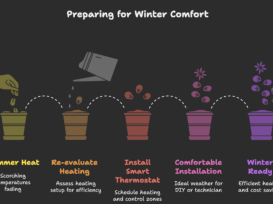Grus Home Energy - fall HVAC upgrade
Advancing Residential HVAC Systems: Technological Innovations and Industry Best Practices for Fall Upgrades
The fall HVAC upgrade represents a critical period for integrating advanced engineering solutions into residential climate control systems, emphasizing energy efficiency, sustainability, and smart automation. Modern HVAC systems leverage cutting-edge technological advancements such as variable speed compressors, smart thermostats, and IoT connectivity, enabling precise climate regulation and real-time system diagnostics. These innovations facilitate data-driven optimization strategies, including predictive maintenance and adaptive energy management, significantly reducing operational costs and environmental footprint. Industry applications increasingly utilize smart sensors and machine learning algorithms to monitor indoor air quality, detect system inefficiencies, and optimize heating, ventilation, and air conditioning cycles seamlessly within home automation platforms. The integration of IoT-enabled devices fosters a networked ecosystem that supports remote control, scheduling, and automated adjustments aligned with user preferences and occupancy patterns, thereby enhancing occupant comfort and energy conservation. Engineering principles like thermodynamics, control systems, and robust network security underpin these advancements, ensuring reliable and resilient system performance. As home automation continues to evolve, the fall HVAC upgrade process plays a vital role in deploying scalable, intelligent solutions. Grus.io’s expertise aligns with these industry trends, contributing to sophisticated Home Energy Management Systems (HEMS), smart monitoring, and automation technologies that optimize energy utilization throughout seasonal transitions.
©2025 All Rights Reserved. Grus IoT Co.,Ltd.
